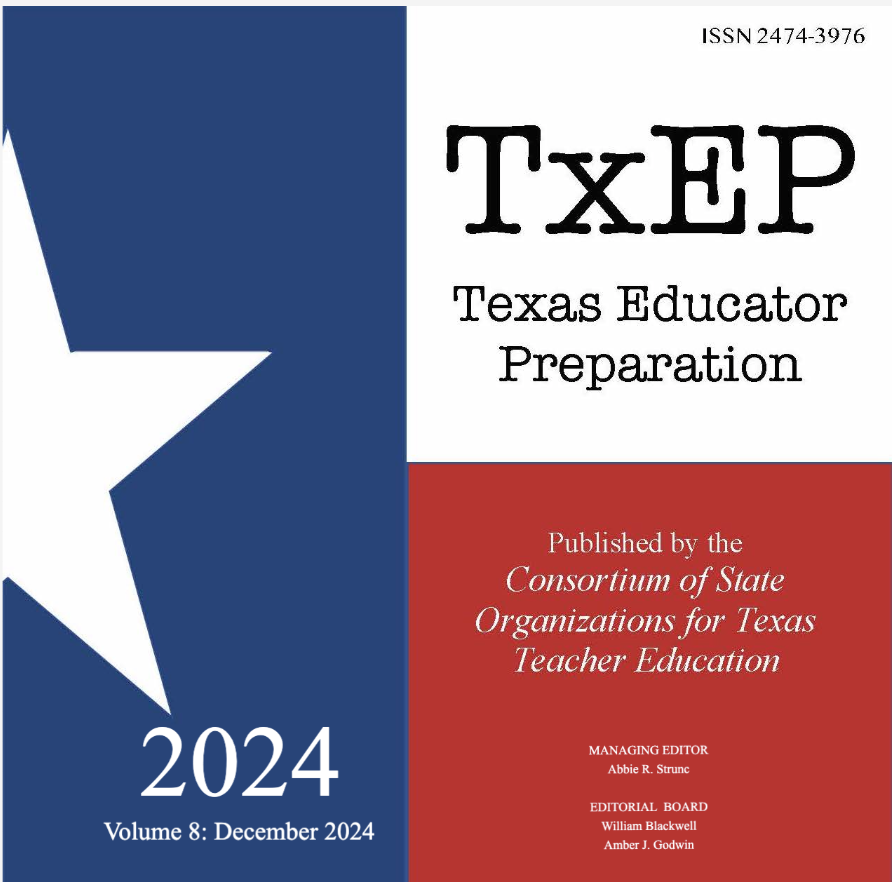Caring by Enhancing Online Principal Preparation Students' Well-Being through Gamification
DOI:
https://doi.org/10.59719/txep.v8i1.46Abstract
This article presents findings from a mixed-methods study investigating the incorporation of Badges, a gamification element, within Canvas modules in an online principal certification program. Drawing upon the gamification framework in education, the study examines graduate students' perceptions of Badges' impact on motivation, engagement, and well-being. Results indicate a predominantly positive perception towards Badges, highlighting their role in promoting engagement, providing instant feedback, fostering camaraderie, and a sense of connectedness among peers. The article concludes with implications for practice and suggestions for future research in leveraging gamification to support students’ well-being in online educator preparation programs.
Downloads
References
References
Alabbasi, D. (2017). Exploring Graduate Students’ Perspectives Towards Using Gamification Techniques in Online Learning. Turkish Online Journal of Distance Education, 18(3), 180-196. https://doi.org/10.17718/tojde.328951
Deterding, S., Dixon, D., Khaled, R., & Nacke, L. (2011). From game design elements to gamefulness: Defining “gamification. Retrieved from https://www.researchgate.net/publication/230854710_From_Game_Design_Elements_to_Gamefulness_Defining_Gamification
Gallardo, S., Villanueva, J. F., Juste, B., & Lorduy, M. (2018). Gamification experiences in a technical course. EDULEARN18 Proceedings. https://library.iated.org/view/GALLARDO2018GAM
Presenter, Li, C. & Presenter, Fryer, L.K. (2024, April 11-14).The use of badges in education: A systematic review. American Educational Research Association Annual Meeting, Philadelphia, Pennsylvania. DOI:10.13140/RG.2.236366.74560
Tahir, F., Mitrovic, A., & Sotardi, V. (2022). Investigating the causal relationships between badges and learning outcomes in SQL-Tutor. RPTEL 17(7). https//doi.org/10.1186/s41039-0222-00180-4
Toney, L., Creghan, C., & Parker, M. (2023). Factors that Influence a Veteran Teacher’s Decision to Leave or Stay in the Classroom. Texas Educator Preparation, 7(2), 90–105. https://doi.org/10.59719/txep.v7i2.23
Uanhoro, J., Young, S. S (2022). Investigation of the effect of badges in the online homework system for undergraduate general physics course. Education Sciences. 12, 217, https://files.eric.ed.gov/fulltext/EJ1353840.pdf
Urh, M., Vukovic, G., Jereb, E., & Pintar, R. (2015). The model for the introduction of gamification into e-learning in higher education. Procedia-Social and Behavioral Sciences, 197(25), 388–397. https://doi.org/10.1016/j.sbspro.2015.07.154.
Werbach, K., & Hunter, D. (2012). For the Win: How Game Thinking Can Revolutionize Your Business. Wharton Digital Press.
Wolfenden, F., Adinolfi, L., & Cross, S. (2020). Exploring open digital badges in teacher education: A case study from India. Journal of Learning for Development, 7(1), 108-115 https://files.eric.ed.gov/fulltext/EJ1251643.pdf





